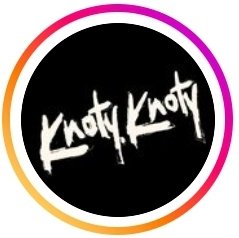To say Victony is an emerging artist is to exhibit lack of cultural awareness of the Afrobeats movement, so if you don’t…now you will know.
The Nigerian singer-songwriter and rapper has been making significant waves in the global music scene with his innovative cross-genre appeal. His new album, Stubborn, features Saint JHN, Asake, Teezo Touchdown, Shorae, and Shallipoppi, showcasing a blend of traditional Nigerian music, Afro-pop, and R&B that he cultivated from his time collaborating with some of the industry’s biggest names like Rema, Don Toliver, and Crayon.
I sat down with Victony (virtually of course) to speak to him about his newest project, his take on the Afrobeats renaissance, and if we’re to see him make a breakthrough in the fashion industry any time soon.
Bethel: Songs like Tiny Apartment and Slow Down are distinctly different in sound from the rest of the album. How different is your experience when making music that close to traditional R&B than Afrobeats R&B?
Victony: I listen to different songs, different genres and artists. I’m inspired by different artists and I love to create; I don’t like to box myself in or be strict with how I want to sound.
It’s not so much of a different experience for me, because one way or the other it seems very familiar because of the artists that I listen to from time to time. Artists like Saint John himself, Giveon.
Bethel: Pier 46 is a gorgeous song. When you’re making romantic music, do you often need specific inspiration for it?
Victony: It depends. Sometimes it’s the beat but oftentimes I’m inspired by somebody.
Bethel: What personal challenges or areas of growth have you experienced when creating this album?
Victony: Figuring out the group of songs to put together for the album. I make different types of music and this is my first album, so there was a lot of songs to sieve through. The songs are different but I still wanted that connective factor that tied everything together.
There was never a point where I said I wanted to make an album. I didn’t even know I was going to put out an album this year, to be honest, until we got really close to it. After a conversation with Olamide, who is a senior colleague of mine, he advised me to put out an album. I decided to work on it in a short period of time to put it out in July before I go on tour. We had already been planning to go on tour last year; independent of a project dropping I just wanted to go on tour.
We made it work and I’m really proud of what we put together.
Bethel: It’s a great project. I want to get your thoughts on the cultural renaissance in Afrobeats and where in time you think this has happened ?
Victony: I think it was a few years back and we’ve had multiple changes since. Dating back to 2019, thats when the Alté scene was popping and Afrobeats artists were getting inspiration from Alté artists, merging both genres. Ranging from the sound of the music to lifestyle and how you dress. Some time in 2022 with Asake’s emergence and the choral effects on hooks, and this year there’s another shift happening. It’s broadening the genre where it’s no longer monotonous.
We’re now having different pockets for different artists. There’s Asake who’s really established and a very strong pillar like modern day Fuji, there’s artists like myself with fusion of genres in a way where Afrobeats is what you hear primarily, but there are undertones of different genres coexisting at the same time. There are other artists who have taken Afrobeats that has been existing to a whole new level with more intense drums, like the Amapiano fusion. We’re still experiencing a shift.
Bethel: Young African artists are standing on the shoulders of giants who built and championed the genre. Do you think they’ve been honouring those that came before them or have they lost the art of paying tribute?
Victony: Some artists pay tribute but the people who don’t, I don’t even blame them. In Afrobeats, we fail to properly document our history but that’s what we’re doing now. A lot of young artists don’t have the education about the origin of the sound, how it progressed and how we got to where we are now as a genre. The people who pay tribute do so from time to time.
I don’t necessarily think it’s a lost art, I think we’ve not been educated enough. There’s nothing to go back to and watch what happened in the past, but times are changing now and what we do for ourselves as artists. I think there are a number of artists working on documentaries. I think there’s a Netflix documentary coming up so it’s changing. Afrobeats is a new genre, we’re figuring out the whole thing but I believe in the near future that will change as well.


Bethel: How have you witnessed the growth of African fashion along with the rise of Afrobeats?
Victony: Fashion and the music is now going hand in hand. We’ve grown as an industry and the fashion industry and music industry are growing together. This is because the era of templates is gradually fading away, where artists had to look a certain way before you recognise them as celebrities or artists. Rather people are leaning more into expressing themselves by dressing how they feel or trying to represent what their music is talking about.
There’s been an acceptance by the audience and that’s also impacted the fashion industry positively. There’s now a small amount of requests of merch here and there from the fans, that didn’t exist before. We’ve grown really well and both industries have grown side by side impacting one another, here in Nigeria.
Bethel: What elements of fashion do you adopt to create your style?
Victony: It’s a bit of street and a bit of luxury. It honestly depends on how I’m feeling or the type of occasion. On a daily, frequent basis, it’s more streetwear becuase I’m a Nigerian boy, a Lagos boy, you understand. I’m heavily inspired by my surroundings and what goes on in my daily life, and that helps me put looks together and come up with how I want to look.
Most times, it’s a story that I’m telling, in my art in general. That helps me to express myself with street fashion with a bit of luxury. I’m still vibing it out. Sometimes, it’s full luxury and some times it’s all street.
Bethel: Do you plan to explore the fashion industry a bit more?
Victony: Yeah definitely, I’m watching the industry from outside, I haven’t stepped in properly. I want to learn and understand the art of fashion before I dive into it. For now I’m just expressing myself.
You can listen to Victony’s latest album below and discover more from GUAP’s Music section here!

I was suggested this web site by my cousin Im not sure whether this post is written by him as no one else know such detailed about my trouble You are incredible Thanks